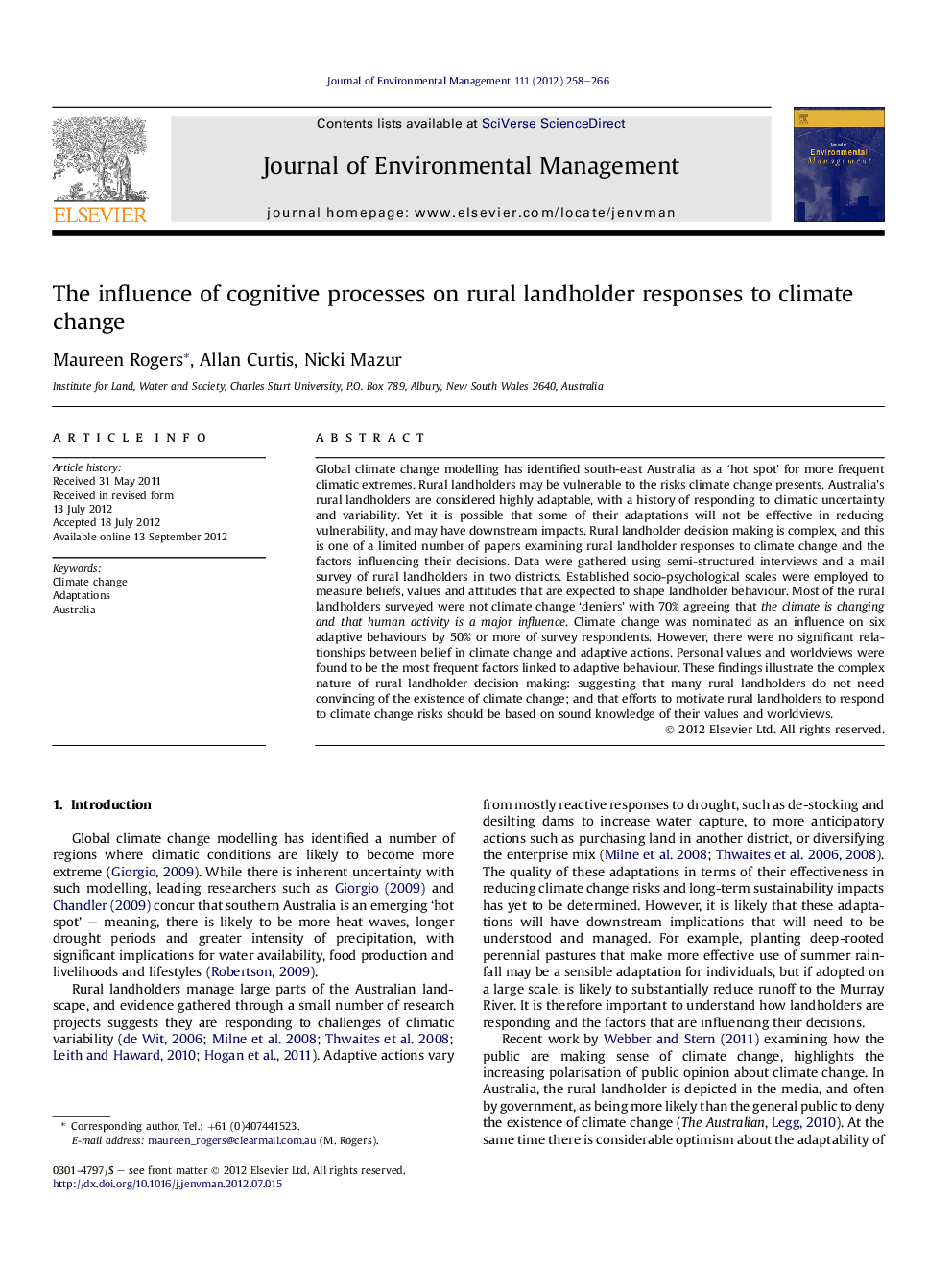| Article ID | Journal | Published Year | Pages | File Type |
|---|---|---|---|---|
| 1056564 | Journal of Environmental Management | 2012 | 9 Pages |
Global climate change modelling has identified south-east Australia as a ‘hot spot’ for more frequent climatic extremes. Rural landholders may be vulnerable to the risks climate change presents. Australia's rural landholders are considered highly adaptable, with a history of responding to climatic uncertainty and variability. Yet it is possible that some of their adaptations will not be effective in reducing vulnerability, and may have downstream impacts. Rural landholder decision making is complex, and this is one of a limited number of papers examining rural landholder responses to climate change and the factors influencing their decisions. Data were gathered using semi-structured interviews and a mail survey of rural landholders in two districts. Established socio-psychological scales were employed to measure beliefs, values and attitudes that are expected to shape landholder behaviour. Most of the rural landholders surveyed were not climate change ‘deniers’ with 70% agreeing that the climate is changing and that human activity is a major influence. Climate change was nominated as an influence on six adaptive behaviours by 50% or more of survey respondents. However, there were no significant relationships between belief in climate change and adaptive actions. Personal values and worldviews were found to be the most frequent factors linked to adaptive behaviour. These findings illustrate the complex nature of rural landholder decision making: suggesting that many rural landholders do not need convincing of the existence of climate change; and that efforts to motivate rural landholders to respond to climate change risks should be based on sound knowledge of their values and worldviews.
► Landholders believed the climate was changing. ► They were taking actions likely to ameliorate the impact of climate change risks. ► No significant relationships found between belief in climate change and taking of adaptive actions. ► Landholders expressed high levels of optimism about ability to adapt. ► Most had a good grasp of the climate change phenomena, but limited knowledge of regional projections and likely impacts.
